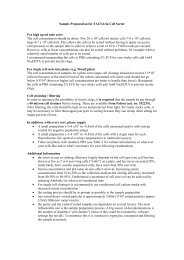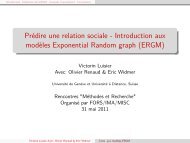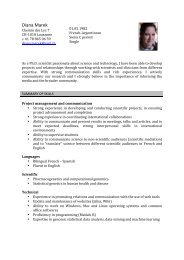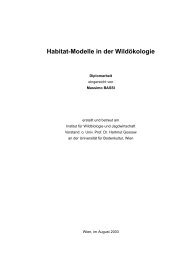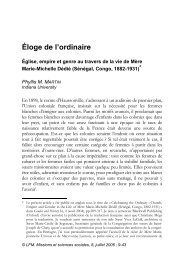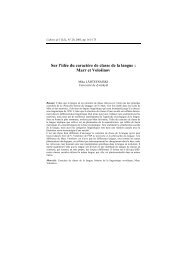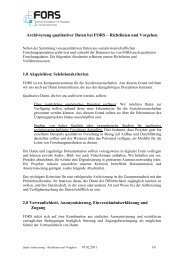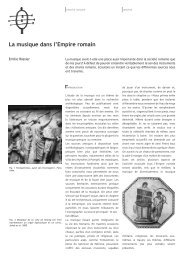conference programme book - European Survey Research ...
conference programme book - European Survey Research ...
conference programme book - European Survey Research ...
You also want an ePaper? Increase the reach of your titles
YUMPU automatically turns print PDFs into web optimized ePapers that Google loves.
FRIDAY 22 JULY 175Due to declining response rates and, concomitantly, rising costs in face-to-face (CAPI) surveys, other methodsgain in aracveness. Most of these methods are coupled with severe disadvantages, like ”digital divide”(online surveys), uncertainty concerning the me of the interview (postal surveys) or uncertainty about whogave the answers (in both). By contrast, telephone surveys (CATI) limit costs and fieldwork duraons, andclosely resemble face-to-face interviews, apart from limited interviewer control over respondents´ parallelacvies and the impossibility of issuing show cards. Apart from sampling issues, interviewing mode effectscould yield different results in CATI surveys than in CAPI surveys...4.6 Linking <strong>Survey</strong> and Administrave Data: A Methodological Perspecve IIITo be held on July 22, 2011 from: 09:00 to 10:30, in room 321.Coordinated by: Jonathan Burton - University of Essex, United Kingdom4.6.1 Pandata Systems: Its Merits and Downsides of Turning Administrave Data into InformaonY. Chun 11 NORC at the University of Chicago, United StatesJoe Waksberg long ago forecast that administrave records are always the answer for the next round of astascal program (Citro, 2010). Administrave data help control rising data collecon costs, reduce surveyrespondent burden, and refine the esmaon process with parcular aenon to nonresponse adjustmentwith auxiliary variables, yet without a rigorous theorecal navigator.4.6.2 Consenng to Health Record Linkage: Evidence from the Brish Household Panel <strong>Survey</strong>G. Knies 2 , E. Sala 1 , J. Burton 31 University of Milano Bicocca, Italy; 2 Instute for Social and Economic <strong>Research</strong>, United Kingdom; 3 Universityof Essex, United KingdomThe Brish Household Panel <strong>Survey</strong> (BHPS) is the first long-running longitudinal survey with a non-medical focusand a sample covering the whole age range to have asked for permission to link to a range of administravehealth records. This presentaon determines whether informed consent led to selecon bias on the BHPS andreflects on the value of the BHPS linked with health records for epidemiological research. Mulvariate stas-cal analysis is performed on informaon from the BHPS. Permission to add health records was asked fromadult parcipants (aged 16+), and pro persona of adults responsible for children, at the end of the personalinterviews to the 18th round of annual interviews of the BHPS (2008). The consent rate across the BHPS Wave18 sample is 40 percent, i.e., much lower than typically is the case on previous medical studies. There are fewdifferences between those who consent and refuse...4.6.3 Exploing Administrave Data to explore Job Churn in the Irish Labour MarketJ. Dunne 11 Central Stascs Office, IrelandThe paper will cover experiences from the Job Churn Explorer project at CSO. The project adapts and developsthe underlying methodology outlined to date to the situaon in Ireland to provide a detailed insight into thedynamics of job churn and its components as Ireland entered the current recessionary period. The analysisdatasets used are derived from linking the following three sources: business register, employer tax returns,social protecon records. The comprehensiveness of the resulng analysis dataset containing aributes onboth workers and enterprises provides for significant new opportunies to inform policy and decision makingwith respect to the labour market. The presentaon will also graphically present some of the analysis at botha worker and enterprise level to demonstrate the potenal of this new informaon...



